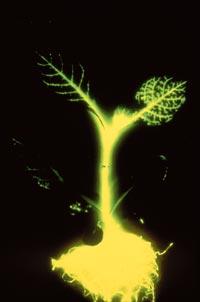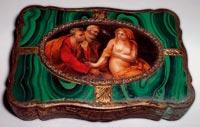Interfuse worlds

As soon as they arrived in America, they realized that the tobacco plant was special. In fact, it is native to the Tropics of America, so the XVI. Until the twentieth century it was not known in Europe. They soon met him. For example, a Spanish chronicler explained how their inhabitants used tobacco: “They breathed and swallowed smoke several times until they lost their instinct or entered into deep sleep. (...) And that apparatus that takes smoke is called by the Indians tobacco, and not the plant or the dream they take.”
The conquerors also began to use tobacco soon. According to the chronicler himself, “I know that Christians use it, especially those affected by the illness of twins, who say that for a time they have their heads elsewhere and feel no pain.”
Thus, the sailors who traveled to America brought to Europe the habit of burning tobacco, but the reward was not simple: believing that burning tobacco was sin and demonic, the inquisition imprisoned one of them, Rodrigo de Jerez. However, the custom was extended and extended in the XVI. In the same century, tobacco reached all social levels. Those of high class took the pipe, while those of low class burned the wrapped leaves, precursors of the later pure.
Although they initially brought all the tobacco from America, they then began to grow in Europe. This plant was highly appreciated by the friars and used as ornamental and as medicinal grass. It was cultivated in orchards inside the convent, hence the name of pond to the tabacalera. However, tobacco planting was removed from the interior of the four walls and was easily opened to wider fields of cultivation.
High level, plain village and women
Tobacco consumption increased rapidly and forms of consumption increased. Catherine Medici, for example, contributed a lot to the habit of taking tobacco powder through the nose among those of high level. This queen suffered severe headaches and French ambassador Jean Nicot recommended that she take tobacco powder to relieve the pain. It seems that the remedy was really good, since it had no more headache.

In a very short time, the rumor about the beneficial effect of tobacco spread throughout the continent. In tribute to the ambassador, the botanist Linneo chose the name of Nicotiana tabacum for the tobacco plant.
The English also contributed to the diffusion of the habit of tobacco consumption. Under the orders of Sir Walter Raleigh, the English sailors explored the east coast of North America. In the territory where it was baptized as Virginia, tobacco grew, which was also called tobacco. In a few years it gained great importance in the English economy and during the great maritime trips that were made all over the world, brought to the Asian, African and oceanic coasts the habit of smoking tobacco.
XVI. XVII. and XVIII. For centuries, tobacco was a source of conflicts between countries that sought to monopolize tobacco production. In fact, he earned very well. XIX. From the end of the twentieth century, tobacco smoking was imposed as a cigarette, and in the US. The tobacco industry acquired great strength in the XX. In the twentieth century.
At present, at all social levels, cigarettes are smoked by adults of all ages, men and women. Other forms of tobacco use have practically disappeared or are less widespread.
Other uses

Just arrived from America to Europe, the friars used the tobacco plant to decorate and heal. It is now not used for either, but it actually has many applications.
For example, in the water to kill angulas, tobacco is placed. Thus they die intoxicated. On the other hand, tobacco residues are used in agriculture, since nicotine is an effective insecticide.
Tobacco has also been used in various areas to obtain citric acid. Contains more citric acid than lemon. In addition, the cellulose located on the poles of the tobacco plant serves to make paper.
Proteins and oil can be extracted from the tobacco plant. Tobacco proteins are foods and are suitable for various nutrition problems. Tobacco oil is not to eat, but it seems to be good for making paints.
There are cooks who use it to give a special touch to the dishes and in Badajoz, in Spain, they make a liqueur of tobacco.





